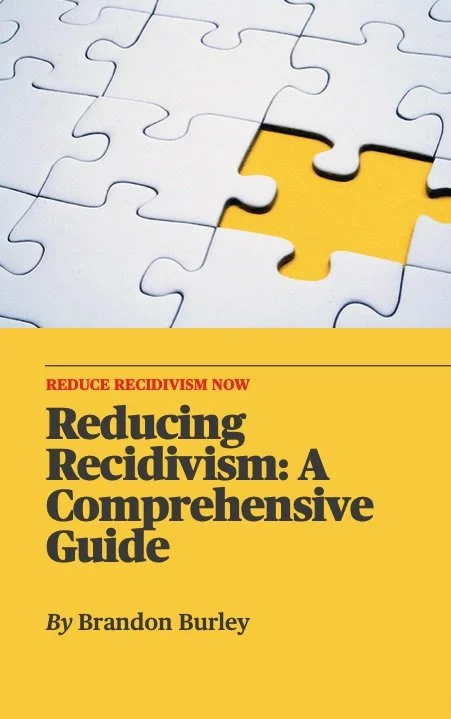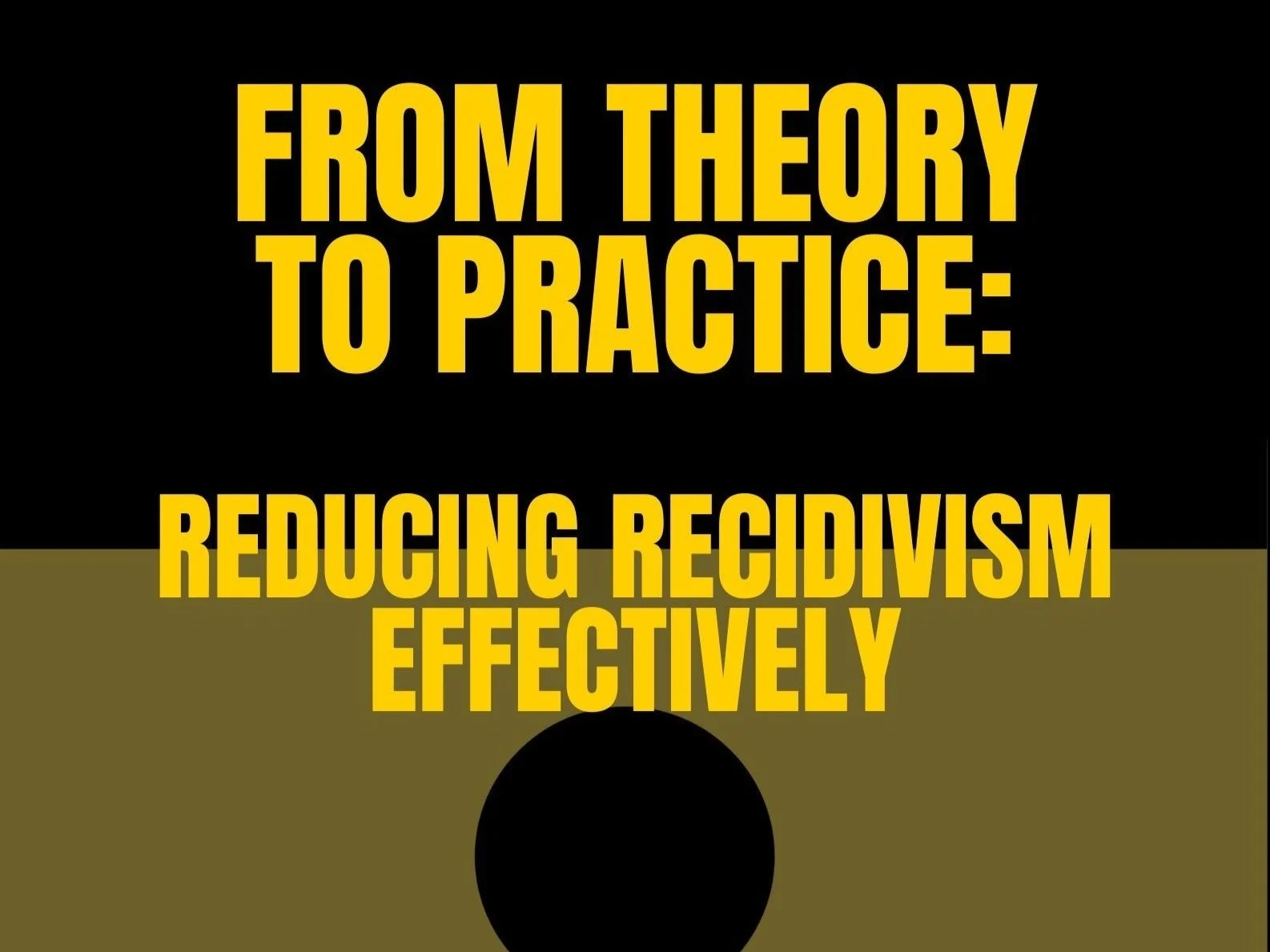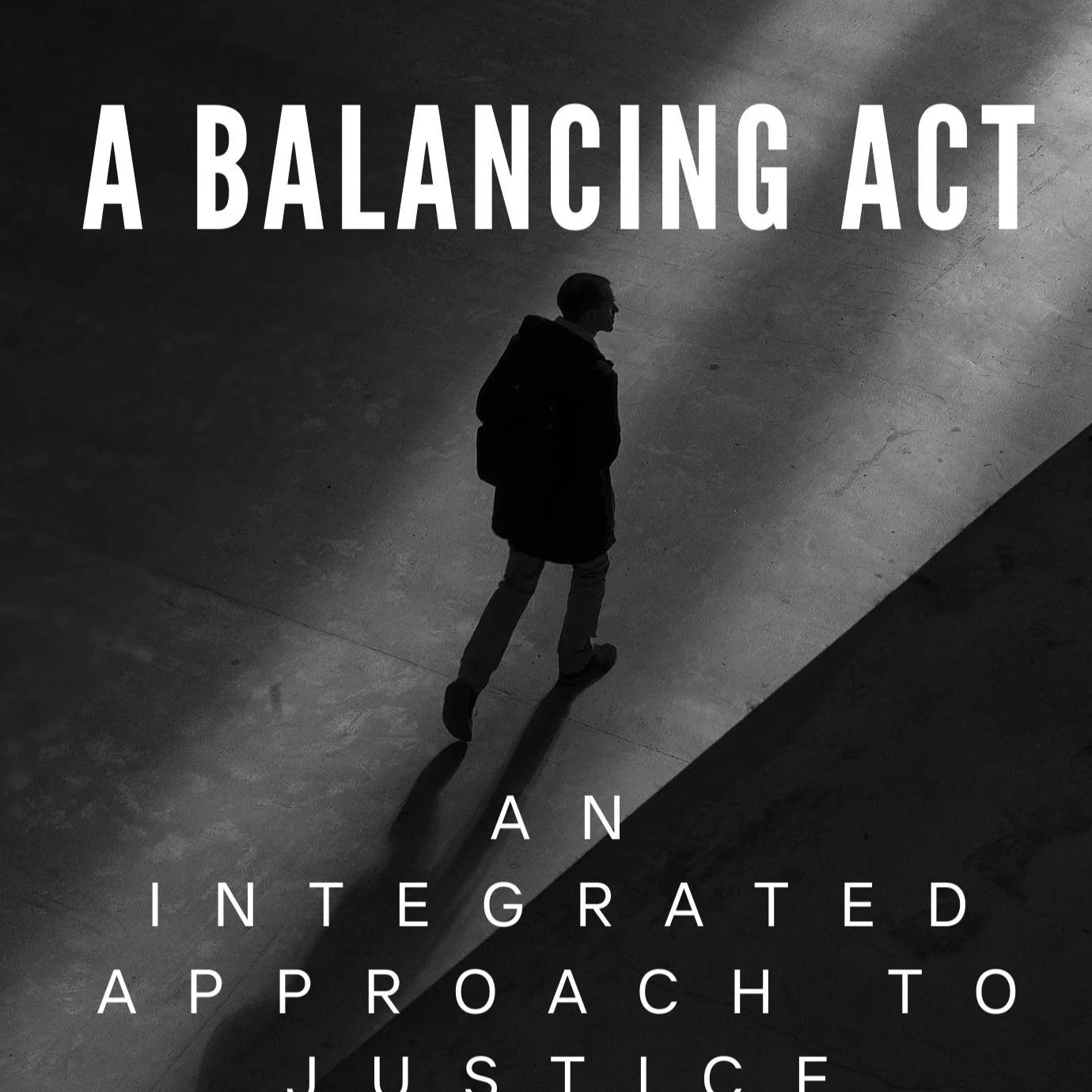Book Resources
Reducing Recidivism: A Comprehensive Guide
In the United States, high recidivism rates pose a significant challenge to the criminal justice system, leading to overcrowded prisons, increased crime, and higher costs for taxpayers. Reducing Recidivism: A Comprehensive Guide offers a holistic approach to addressing this pressing issue by focusing on four critical areas: education, employment, mental health and substance abuse treatment, and community engagement.
COMING SOON!
From Theory to Practice: Reducing Recidivism Effectively
Practical Solutions and Theoretical Insights for Reducing Recidivism
Discover the essential strategies and insights needed to effectively reduce recidivism and support the successful reintegration of formerly incarcerated individuals with "From Theory to Practice: Reducing Recidivism Effectively." This comprehensive omnibus, authored by Brandon Burley, delves into the critical role of employment in reintegration, providing a detailed roadmap for correctional facility administrators, policymakers, and community organizations.
In this book, you'll find:
Detailed strategies for designing and implementing effective job training programs in correctional facilities.
Comprehensive approaches to overcoming legal and practical barriers to employment.
Proven methods for engaging employers and building strong community partnerships.
Insights into creating supportive work environments and providing ongoing support for job retention and career advancement.
Innovative ways to leverage technology and digital platforms to enhance job training and support.
Securing Funds: A Comprehensive Guide To Successful Grant Writing
Securing funding is critical for law enforcement agencies striving to enhance their capabilities, improve community relations, and innovate policing methods. "Securing Funds for Law Enforcement: A Comprehensive Guide to Successful Grant Writing" is an essential resource for law enforcement professionals seeking to navigate the complex world of grants. This guide provides step-by-step instructions on finding, applying for, managing, and successfully leveraging federal, state, and private grants.
Whether you're new to grant writing or looking to refine your skills, this book covers all the bases—from understanding the types of grants available to writing compelling proposals, ensuring compliance, and maximizing the impact of awarded funds. Equip your agency with the knowledge and tools to secure the funding necessary to drive meaningful change and enhance public safety.
A Balancing Act: An Integrated Approach to Justice
The quest for a balanced approach to justice is an ongoing journey that requires perseverance, collaboration, and a steadfast commitment to principles of fairness and equity. As we conclude this exploration, it is essential to reflect on the insights gained and the path forward in creating a criminal justice system that truly serves its purpose.
The complexities of crime, the diverse needs of offenders, and the expectations of the public demand a multifaceted and adaptable approach. Law enforcement agencies must balance proactive policing with community engagement, ensuring that their actions build trust and cooperation. The judiciary must strive for fairness in trials and sentencing, recognizing the potential for rehabilitation alongside the need for accountability. Correctional institutions must prioritize humane treatment and comprehensive rehabilitation programs that prepare inmates for successful reintegration into society. Community organizations must provide essential support services that bridge the gap between incarceration and reentry, fostering a network of care that extends beyond the walls of correctional facilities.
Collaboration is the cornerstone of a balanced approach to justice. By working together, criminal justice stakeholders can create a cohesive and integrated system that addresses the root causes of criminal behavior, promotes accountability, and supports rehabilitation. This collaborative effort requires continuous communication, data sharing, and a commitment to evidence-based practices. In "Securing Funds for Law Enforcement: A Comprehensive Guide to Successful Grant Writing," I emphasize the importance of securing resources to support these initiatives, ensuring their sustainability and effectiveness.





